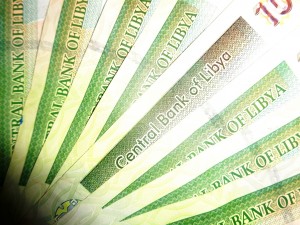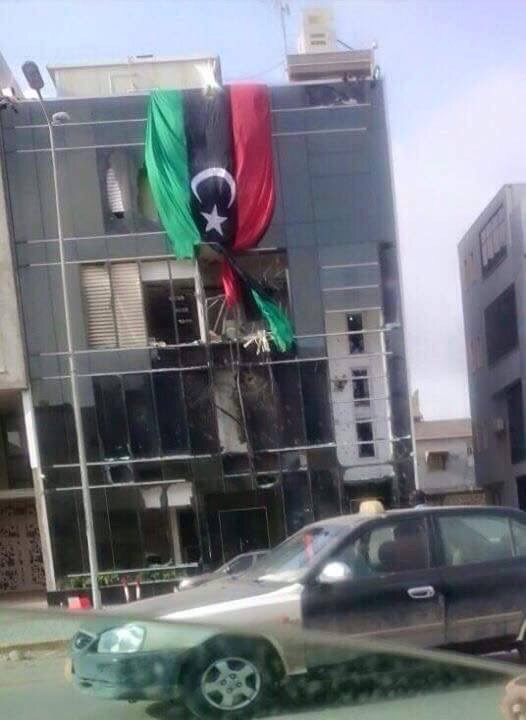By Saber Ayyub.

Tripoli, 2 April 2016:
The black market value of the Libyan Dinar has climbed strongly to end today at LD 2.74 . . .[restrict]to the dollar, as far cry from when the rate had fallen to around LD 4 .
Supporters of the Government of National Accord and the Presidency Council have been ascribing the change to the arrival of prime minister-designate Faiez Serraj in Tripoli. Dealers in the Gold Market were altogether more prosaic. “I think this has happened today because the demand for the Libyan dinar was higher than the demand U.S dollars,” money market dealer Ibrahim Al-Ahmar told the Libya Herald. This might well have been a reflection of the dinar shortage of recent weeks and the need to settle bills at the end of March.
Whatever the driver for the dinar’s strengthening in the last four days, the key issue actually seems to be whether the banks will have sufficient cash when they reopen tomorrow after the weekend.
The Presidency Council has insisted that recent shortages will be fixed. There would be enough cash at the banks. Withdrawals would no longer be limited.
Some are seeing this as a first administrative test for Serraj. There has been speculation that the dinar shortage was caused by the Central Bank of Libya deliberately starving the commercial banks. This theory is extended to wonder if there were not some manoeuvre to create a problem and popular anger with the Ghwell administration, which would be the first big challenge for Serraj to solve.
A source at the CBL has told this newspaper that the cash shortage would be solved during the coming week, not necessarily by tomorrow. Indeed there was no obvious movement of armoured cash trucks around Tripoli in the course of today.
CBL governor Saddek Elkaber in Tripoli has however maintained publicly that the bank was above politics. CBL spokesman Essam Al-Aoul told this newspaper “The governor always supported the formation of a single national unity government for the country in order to help the bank to operate better. The presence of two governments and two parliaments imposed a permanent weight on of the bank’s shoulders”. [/restrict]







